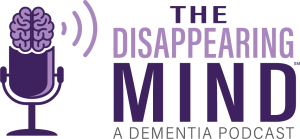Balance issues in seniors can significantly impact your quality of life and increase the risk of falls and injuries. As you age, changes in vision, muscle strength, and sensory perception can affect your balance and stability.
While occasional balance problems are common, persistent issues may indicate underlying health concerns that require medical attention. In this article, learn more about when to seek medical advice about balance issues in the elderly and steps you can take to improve balance and reduce the risk of falls.
Frequent Falls or Near Falls
Experiencing frequent falls or near falls is a clear indication that something may be wrong with your balance. If you find yourself losing your balance often or feeling unsteady on your feet, it’s essential to seek medical advice promptly. Your healthcare provider can evaluate your balance and recommend appropriate interventions to address any underlying issues.
Dizziness or Vertigo
Dizziness or vertigo, the sensation of spinning or whirling, can significantly impact your balance and mobility. These symptoms may indicate inner ear problems, such as vestibular disorders, or other underlying health conditions.
If you experience persistent dizziness or vertigo, particularly when changing positions or moving your head, consult your healthcare provider for further evaluation and management.
Difficulty Walking or Standing
Difficulty walking or standing upright can be a sign of balance issues in the elderly. If you notice changes in your gait, such as shuffling feet or difficulty lifting your feet off the ground, it’s essential to seek medical advice.
Your healthcare provider can assess your walking pattern, muscle strength, and joint flexibility to determine the underlying cause of your balance problems and recommend appropriate treatment options.
Weakness or Numbness in Legs
Weakness or numbness in your legs can affect your balance and increase the risk of falls. These symptoms may indicate nerve damage, circulation problems, or other neurological issues that require medical attention. If you experience persistent weakness or numbness in your legs, particularly if it’s accompanied by difficulty walking or standing, consult your healthcare provider for evaluation and management.
Changes in Vision or Hearing
Changes in vision or hearing can impact your balance and spatial awareness, increasing the risk of falls and accidents. If you notice changes in your vision, such as blurriness, double vision, or difficulty seeing in low light, or experience hearing loss or ringing in your ears, it’s essential to have your eyes and ears checked regularly by healthcare professionals.
Addressing vision and hearing problems promptly can help improve your balance and reduce the risk of falls.
Medication Side Effects
Some medications can cause dizziness, lightheadedness, or other side effects that affect balance and coordination. If you experience balance issues after starting a new medication or notice changes in your balance while taking certain medications, consult your healthcare provider.
They can review your medication regimen, adjust dosages if necessary, or prescribe alternative medications with fewer side effects.
Enhanced Safety and Well-Being at Our Retirement Community
Balance issues in the elderly can have a significant impact on overall health and well-being. Knowing when to seek medical advice about balance problems is crucial for maintaining mobility, independence, and quality of life.
The team members at our retirement community in Roanoke, VA prioritize the safety and well-being of our residents. With our supportive environments, you can be assured that you will receive the care and assistance you need to address balance issues and maintain your mobility and independence.
Visit us today to learn more about how we can support you and your family in achieving optimal health and well-being in our retirement community.








